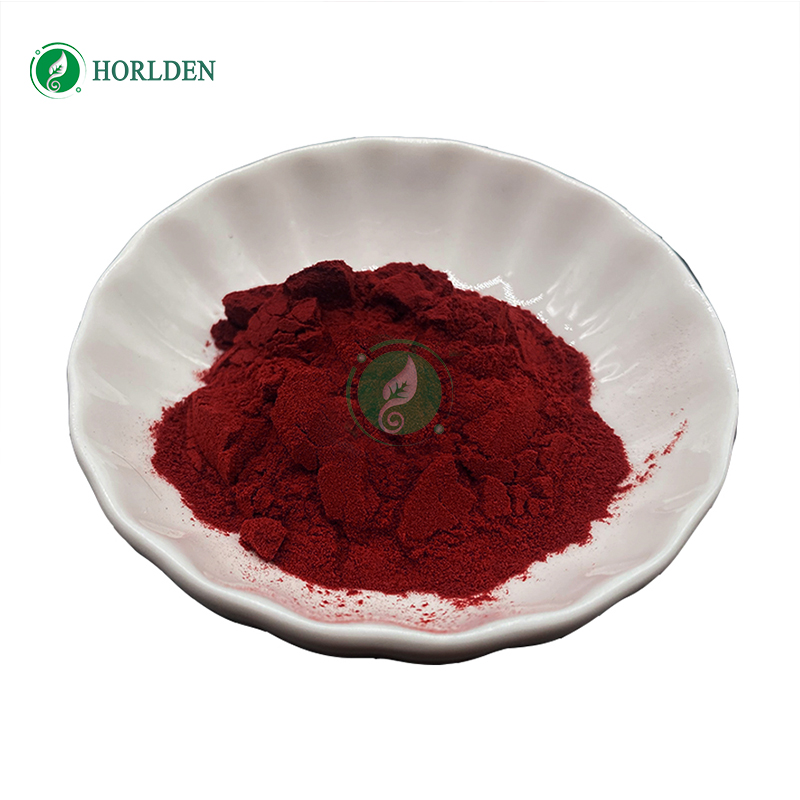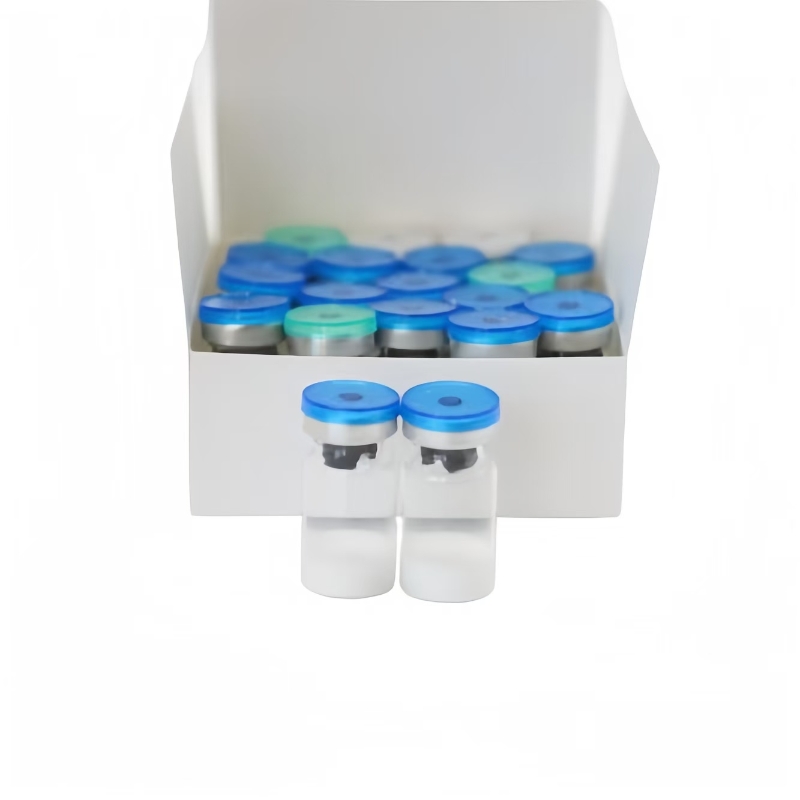-
Categories
-
Pharmaceutical Intermediates
-
Active Pharmaceutical Ingredients
-
Food Additives
- Industrial Coatings
- Agrochemicals
- Dyes and Pigments
- Surfactant
- Flavors and Fragrances
- Chemical Reagents
- Catalyst and Auxiliary
- Natural Products
- Inorganic Chemistry
-
Organic Chemistry
-
Biochemical Engineering
- Analytical Chemistry
-
Cosmetic Ingredient
- Water Treatment Chemical
-
Pharmaceutical Intermediates
Promotion
ECHEMI Mall
Wholesale
Weekly Price
Exhibition
News
-
Trade Service
Image: Dr.
Wendy Bollag and first author Dr.
Vivek Choudhary, MCG physiologist and molecular biologist
Psoriasis patients report that glycerin is a cheap, harmless, slightly sweet liquid, which ranks high in the ingredient list of many skin lotions.
It is effective in treating psoriasis.
Now scientists have objective evidence to support their report.
They found that glycerin or glycerin, whether used topically or in drinking water, helped relieve the scaly, red, raised, and itchy plaques typical of psoriasis models, Dr.
Wendy Bollag said.
Cell physiologists and skin researchers at Georgia Medical College and Charlie Norwood Veterans Medical Center and their colleagues published a report in the International Journal of Molecular Science
.
These studies also provide more evidence that glycerin can promote the healthy maturation of skin cells through four stages and form a smooth protective layer
.
Psoriasis is an immune-mediated problem that usually occurs in young people.
Skin cells multiply rapidly and accumulate into inflammatory plaques
"We now have experimental data to show the reports of these patients with psoriasis," said Bollag, who first reported on glycerin, a natural alcohol and water attractant, in the Journal of Dermatology Research nearly 20 years ago.
It can help the skin look better, and it can safely help the skin cells mature and function better
.
Bollag’s early reports led to many anecdotal reports from individuals, and these reports eventually led to newly published research
.
Generally speaking, glycerin has a soothing and emollient effect
.
But another key part of its magic is its conversion into lipids or fats, namely phosphatidylglycerol, which ultimately regulates the function of keratinocytes (our main skin cell type) and inhibits inflammation in the skin
.
Glycerol enters the skin through aquaporin-3 and other pathways, a channel expressing skin cells.
MCG scientists have shown that once it enters, aquaporin 3 funnel phospholipase-D-2 glycerol, an enzyme that converts fat in the outer cell membrane For the cell signal, the glycerol is finally converted into phosphatidylglycerol
.
In 2018, Bollag and his team reported that in a mouse model of psoriasis, topical application of phosphatidylglycerol can reduce inflammation and typical raised skin plaques
.
This time, they decided to study the effects of their widely used precursor glycerin
.
In the new study, they used imiquimod to create animal models
.
As we all know, imiquimod produces psoriasis-like plaques on humans, and it is used to treat genital warts and some skin cancers
.
On the surface, glycerol acts as an emollient because it is beneficial even in mice lacking phospholipase-d -2
.
In addition, on the surface it appears to compete with hydrogen peroxide for the space in the water channel 3 channel
.
Scientists have discovered that topical glycerin can reduce the level of hydrogen peroxide that enters skin cells
.
When they added glycerin and hydrogen peroxide directly to skin cells at the same time, they found that glycerin can protect the skin from the oxidative stress of hydrogen peroxide
.
"Glycerin is basically better than hydrogen peroxide in entering and preventing the entry of hydrogen peroxide and increasing oxidative stress," Bollag said
.
Oil and water cannot be mixed, so another way glycerin may be useful is to support the skin's water penetration barrier.
This important role, as an extreme, when we sit in the bathtub, the bath water does not pass through our skin, so we blow up one Like a balloon, she said
On the other hand, when glycerol was ingested by rats with Phospholipase-d2, which signaled fat or cell membrane lipids, it just didn't work, Bollag said.
Earlier, they confirmed their findings.
Glycerol is essential for enzyme production.
Signal maturation of skin cells
.
Some of their recent work details how phosphatidylglycerol reduces inflammation
.
Bollag hopes that the next step will also include clinical trials with dermatologists and patients, and is working to find a formulation scientist who she believes will be the best combination: glycerol and phosphatidylglycerol in the same topical cream
.
Since there is evidence that in psoriasis, converting glycerol to phosphatidylglycerol is not the best method, the addition of phosphatidylglycerol itself, not just the addition of glycerol, is essentially a backup method
.
Bollag’s laboratory and other researchers have found that the level of aquaporin 3 in patients with psoriasis is reduced, which may mean that the content of phosphatidylglycerol is reduced, so increasing the content of glycerol may help increase this effect on normal skin cell proliferation.
Vital lipid content, although the effect is not very good
.
It should be relatively easy to enter clinical trials quickly, because just like glycerol, there is already experience in using phosphatidylglycerol in humans
.
For example, it is an integral part of some high-end cosmetics, Porag said
.
She suspects that this combination of dual effects can help prevent the early symptoms of psoriasis.
For more serious diseases, use existing psoriasis treatments to control the skin condition, and then start using glycerin to help maintain this state
.
In 2018, Bollag and her colleagues reported in the Journal of Investigative Dermatology that in a mouse model of psoriasis, phosphatidylglycerol reduced inflammation and reduced the characteristics of psoriasis skin lesions
.
Although the exact cause is not yet known, psoriasis is an immune-mediated disease.
The patient has a high level of inflammation and produces too many skin cells, which then mature abnormally
.
Increased inflammation also increases their risk of diseases such as heart disease
.
Biological agents used to treat psoriasis suppress this overactive immune response in different ways, but in addition to being costly, they may also put patients at risk of serious infections and cancer
.
In about 20 years of glycerin research and clinical and cosmetic use, the only side effect she saw was that it made the skin feel a little sticky
.
Article title
Glycerol Improves Skin Lesion Development in the Imiquimod Mouse Model of Psoriasis: Experimental Confirmation of Anecdotal Reports from Patients with Psoriasis







